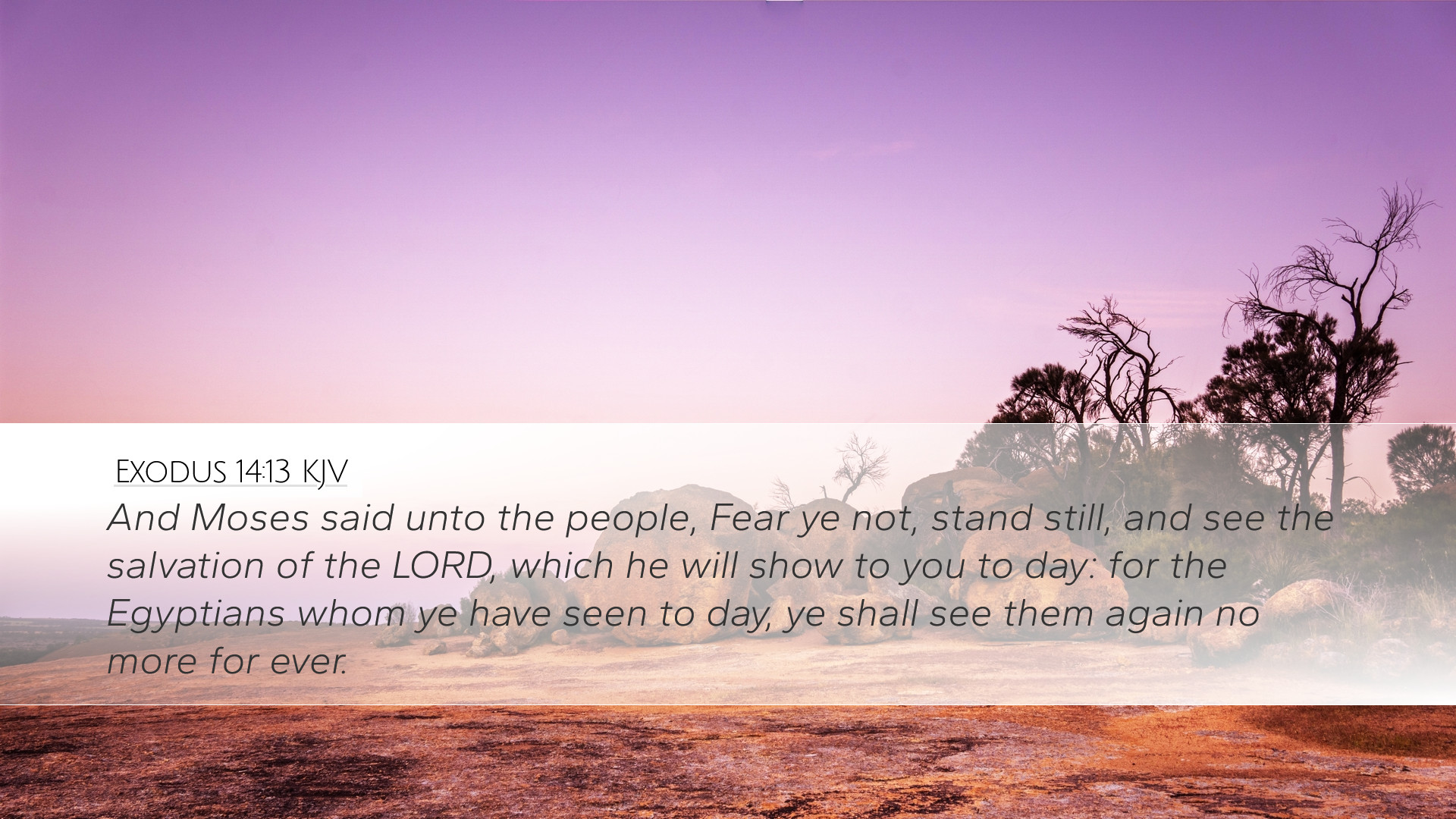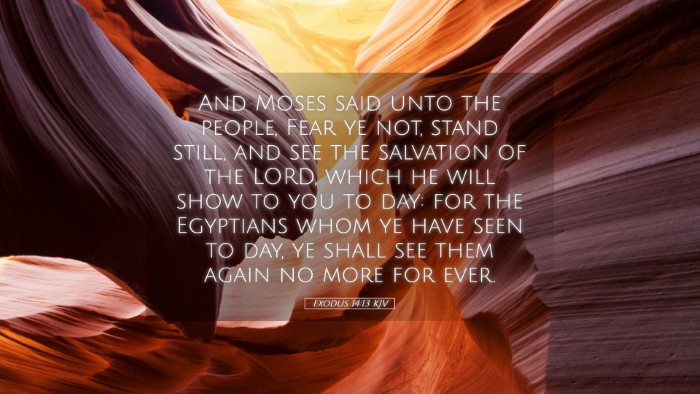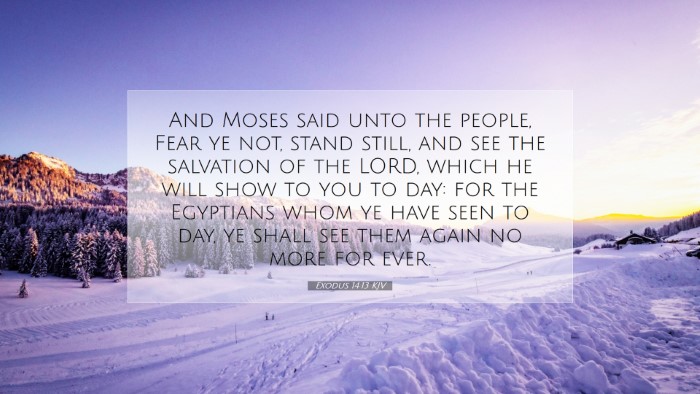Bible Commentary on Exodus 14:13
Exodus 14:13 states, “And Moses said unto the people, Fear ye not, stand still, and see the salvation of the LORD, which he will show to you today: for the Egyptians whom ye have seen today, ye shall see them again no more for ever.” This verse encapsulates a moment of profound faith and divine deliverance, where Moses reassures the Israelites in the face of imminent danger. Below, we delve into a summary of insights from recognized public domain commentaries to enrich understanding of this significant scripture.
Contextual Background
The context of Exodus 14:13 is crucial to understanding its message. The Israelites had just been liberated from Egyptian slavery, yet they found themselves trapped between the advancing Egyptian army and the Red Sea. This critical juncture exemplifies God's providence amidst fear and chaos.
Moses' Assurance and Call to Faith
Moses's exhortation, “Fear ye not,” serves as a powerful reminder that faith often requires overcoming fear. According to Matthew Henry, this phrase reflects Moses’ role not only as a leader but also as a mediator who channels God’s promises to the people.
Albert Barnes adds depth to this understanding, asserting that Moses's command to “stand still” symbolizes a call to spiritual serenity and trust in God’s deliverance rather than succumbing to panic and despair.
Seeing the Salvation of the LORD
The phrase “see the salvation of the LORD” highlights the expectation of divine intervention. Adam Clarke interprets this as a profound act of faith, where Moses encourages the Israelites to witness the unfolding of God’s salvation—a theme woven throughout scripture that demonstrates God’s unwavering commitment to His covenant people.
Divine Deliverance
The assurance that “the Egyptians whom ye have seen today, ye shall see them again no more for ever” points to a decisive victory. Matthew Henry notes that this proclamation emphasizes God’s power to eradicate threats to His people permanently, illustrating the ultimate deliverance from oppression.
Theological Implications
This verse raises significant theological themes relevant for pastors and theologians:
- Faith and Fear: It challenges believers to confront their fears with faith, acknowledging God's sovereign ability to save.
- The Nature of Salvation: The reference to “salvation” in a physical sense prefigures the spiritual salvation found in Christ, as noted by Albert Barnes.
- God’s Sovereignty: The narrative asserts God’s sovereignty over nature and nations, a core tenet of biblical theology.
Pastoral Applications
Pastors can draw from this verse in their ministries to encourage congregations facing trials:
- Encouragement in Crisis: Just as Moses comforted the Israelites, pastors can be agents of hope, directing congregants to look at God’s promises rather than their circumstances.
- Promoting Stillness Before God: Moses's command to “stand still” instead of acting out of fear can be a model for prayerful patience in turbulent times.
- Celebrating God’s Deliverance: Teach congregants to recognize and celebrate instances of God’s providential care and deliverance in their lives.
Conclusion
Exodus 14:13 invites believers to embrace a posture of faith amid adversity. By studying this verse with insights from noted commentaries, we gain a deeper appreciation for the nature of God’s deliverance and the assurance it brings. As seen through the lens of Moses’ encouragement, followers of Christ are to anticipate and observe the unfolding of God’s salvation in their lives. This passage serves as a profound reminder that through faith, fear can be overcome, and the imminent threats of life can be met with the assurance of divine intervention.


